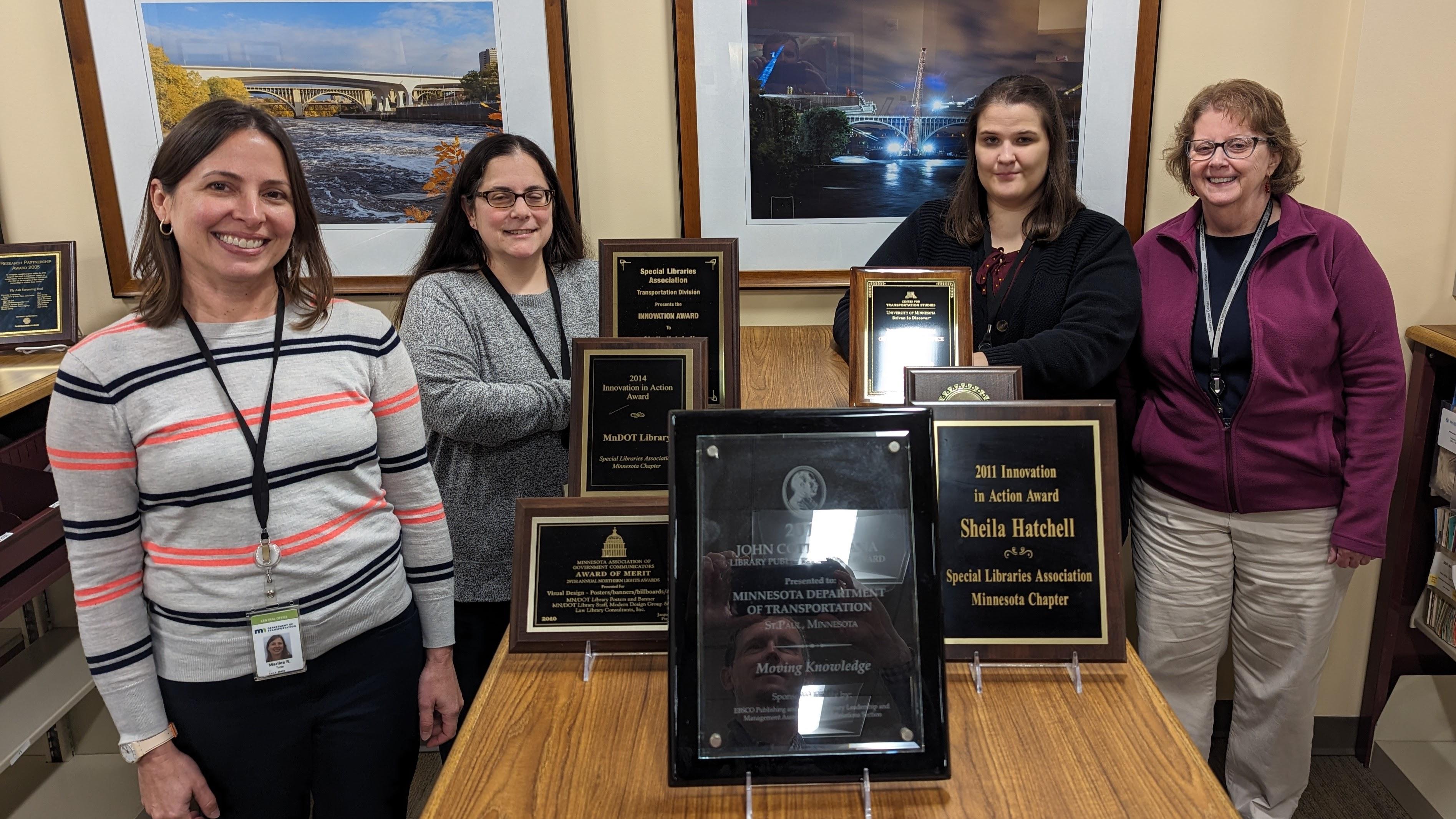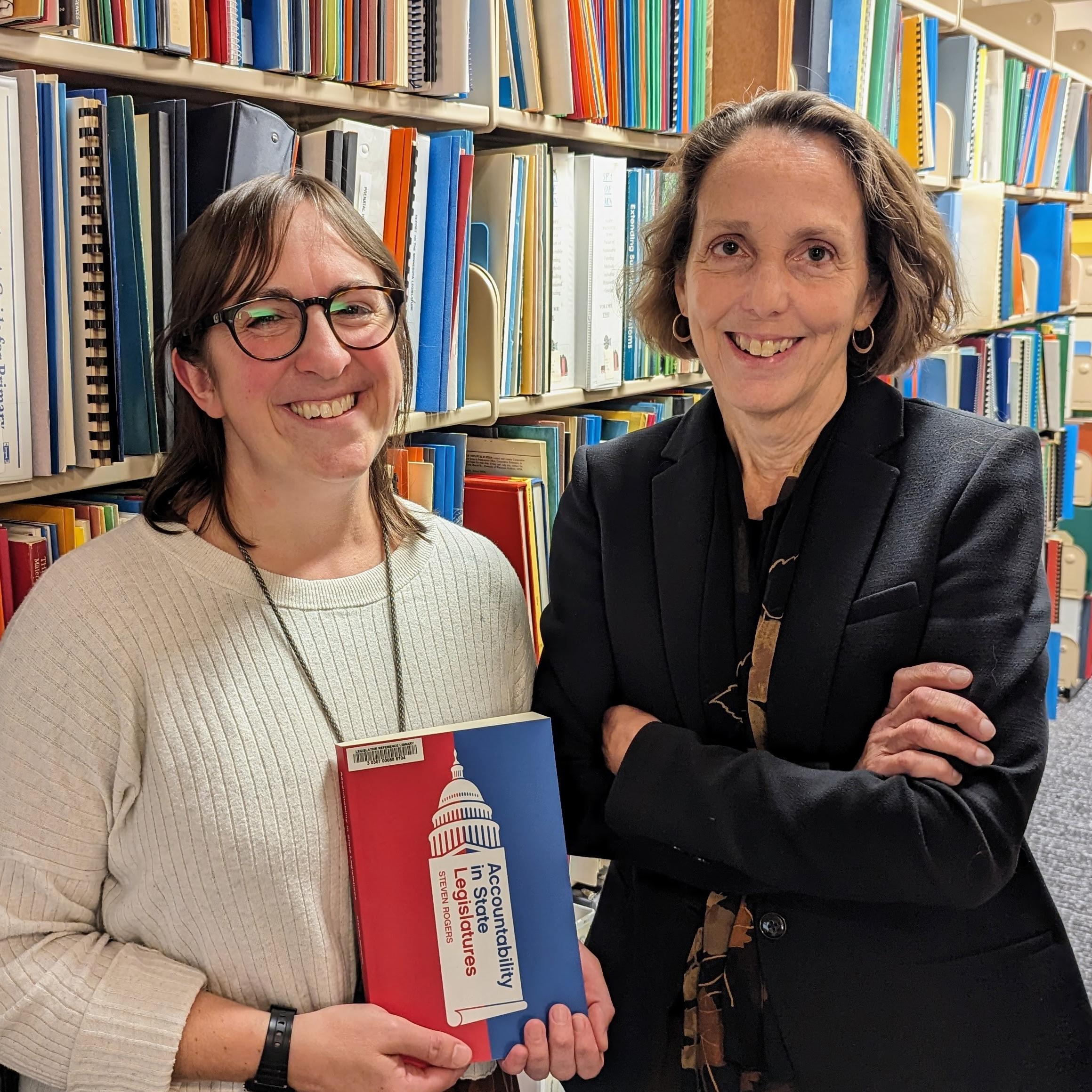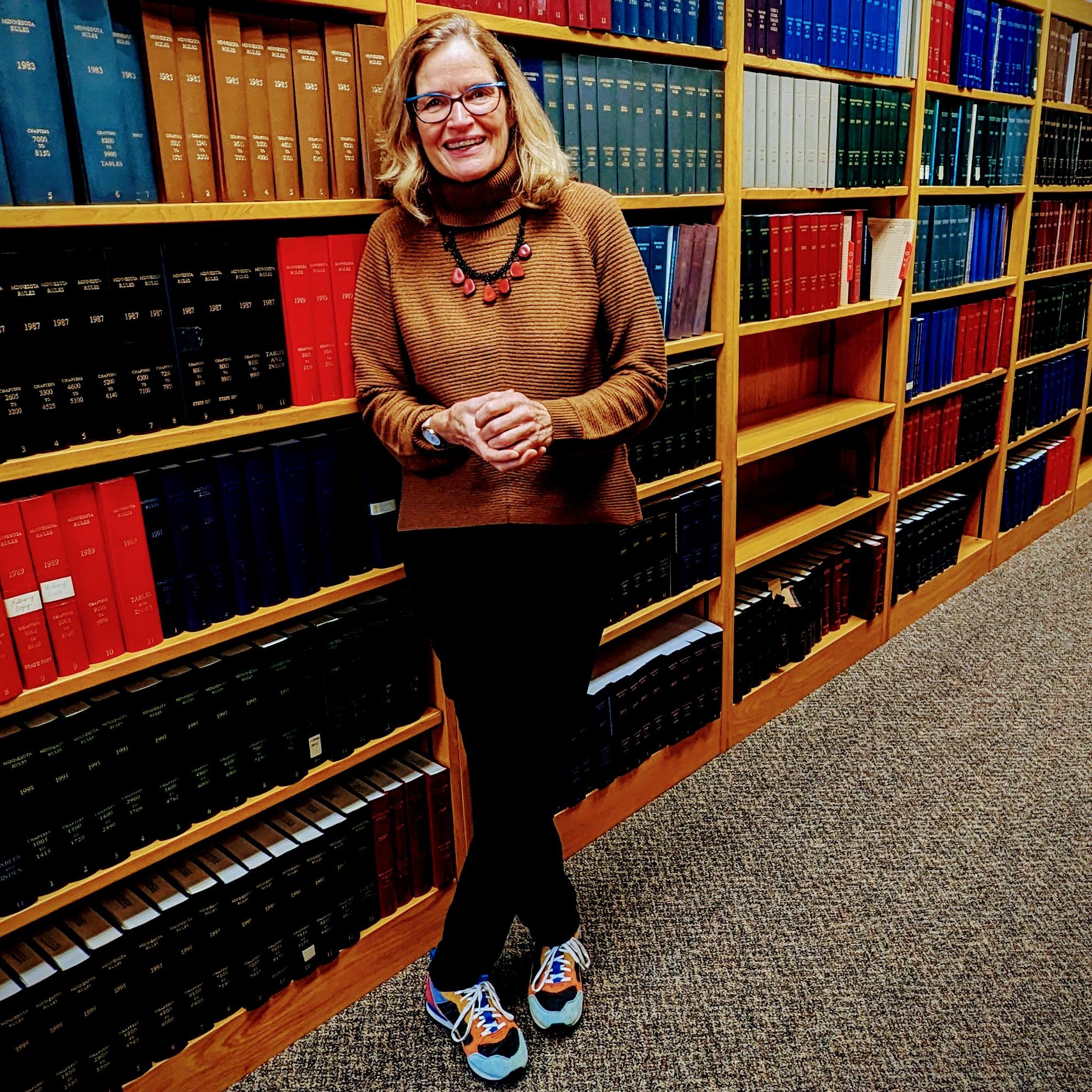by Zach Miller
Quick Summary
In honor of the 50th anniversary of the Capitol Area Library Consortium (CALCO), we are profiling a number of its members for our readers. The Minnesota Department of Transportation (MnDOT) Library underpins the work of MnDOT employees as well as city and county officials across Minnesota. MnDOT Library is more than just a resource center, it is a key player in the development and maintenance of Minnesota's transportation system.

MnDOT Library's staff of six, led by Director Sheila Hatchell, enables information access that makes smart decisions possible. The accolades they have received over the years speak volumes about their commitment to excellence. These include being one of the first special libraries ever selected for the prestigious ALA John Cotton Dana Public Relations Award.
The library's potency is increased through its collaboration with the University of Minnesota Center for Transportation Studies (CTS). The two share a catalog and staff, and along with the Minnesota Local Road Research Board (LRRB), they form the Minnesota Transportation Libraries Program. Their collection is transportation-focused, and more than 20 percent of its cataloged items are unique in WorldCat, setting it well apart from others. Notable items include the original paper copy of the Minnesota Registered Trails Index, handwritten trail locations, and hand-drawn artwork. The library also includes original standards and specifications dating back to early bridge work, as well as comprehensive documentation of the 35W Bridge.
The collection's value and uniqueness doesn't mean MnDOT Library is walled off from the public. Far from it. Unlike many special libraries, MnDOT Library is fully accessible to the public. The library welcomes anyone seeking transportation-related information, and no appointment is necessary. Citizens, students, professors, and curious minds take advantage, eager to explore current methods and transportation history alike. Anybody with identification issued by the State of Minnesota can check out a book. Staff keep the library's doors open Monday through Friday from 8:00 a.m. until 4:30 p.m. Their commitment to openness defines the library's role as a valuable community resource.
MnDOT Library embraces the library community as well. Affiliation with the Capital Area Library Consortium (CALCO) has played a pivotal role in its growth and success. CALCO provides the library with a platform for collaboration, allowing it to share ideas, resources, and expertise with other state government libraries. Through CALCO, the library has negotiated shared vendor contracts, collaborated on the use of the PALS system, and engaged in knowledge-sharing activities to enhance their services.
Despite their openness, the library's primary audience is still MnDOT employees, along with city and county transportation officials. Their support for these transportation-planning patrons often goes unseen and can begin years, even decades, before a single orange cone appears on the road. Library staff delve into research on traffic patterns, paving materials, historical maps, and even demographic information. Their goal is to provide planners with the information they need to build sturdy and durable roads while also giving them crucial insight into how their projects might affect the people that live near them. On one instructive occasion, MnDOT staff decided against extending a road because library research into the history of the road revealed that the reasons it wasn't extended in the first place were still valid. The project was canceled.
By the time the hybrid work schedules touted by State of Minnesota hiring officials had led to reduced foot traffic at the library (along with basically every other facility in the State Capitol Complex), the library's staff had already adapted their operations to the digital age. With Microsoft Teams as their communications hub, the staff tackles tasks such as project collaboration, scanning, mailing items, answering phones, and handling interoffice mail. The physical library, though less visited than before, remains a crucial asset, and staff are dedicated to maintaining it. There is always at least one staff member on site, and regular in-person meetings regularly bring the entire group together at the library. There's a special energy on those days, they say.
Director Sheila Hatchell and her predecessor, Jerry Baldwin, have both played central roles guiding the library's trajectory. Baldwin, a co-founder of CALCO, advocated for staff expansion and improved space. Hatchell's leadership has led to state, national, and international recognition, including the aforementioned ALA John Cotton Dana Award, given in 2012. Hatchell joined the staff in December 2007, just four months following the collapse of the 35W Bridge near downtown Minneapolis. It was a difficult time at MnDOT. Requests came in from around the world for information related to the bridge, and for months, the staff maintained a dedicated guest workstation to help handle the load.
In the years that have followed, Hatchell's leadership has extended beyond MnDOT Library to the nationwide community of transportation libraries. Roughly one out of three states has a transportation library, most of which consist of a single librarian. Their work is aided by Hatchell's research and publications. These include “Proving Your Library’s Value: A Toolkit for Transportation Librarians” and the "2013 MnDOT Library Valuation/Return on Investment Study Findings." Several libraries have referred to the toolkit to prove their value.
MnDOT Library is more than just a collection of books and rare materials. It is a team of six talented librarians driving the development of Minnesota's transportation infrastructure. They set the standard nationwide for how a transportation library can benefit information seekers, the communities impacted by transportation projects, and the transportation system as a whole. As our information landscape evolves, MnDOT Library stands ready to illuminate the way forward.
Library Staff
- Sheila Hatchell, director
- Jim Byerly, electronic resources librarian
- Maddie Kuncio, digitization and reference librarian
- Karen Neinstadt, reference and outreach librarian
- Qin Tang, technical services librarian
- Marilee Tuite, reference and digital services librarian (jointly appointed to MnDOT and the University of Minnesota)
ABOUT CALCO
Capitol Area Library Consortium (CALCO) libraries work cooperatively to promote and enhance library services in state government through unique and diverse collections of resources. CALCO strives for easy access to state government library services and resources by state employees, local government officials, Minnesota citizens, and other libraries nationwide. These are the CALCO libraries:
- Attorney General Library
- Department of Employment and Economic Development Library
- Department of Health, Barr Library
- Department of Natural Resources Library
- Department of Revenue Library
- Department of Transportation Library
- Legislative Reference Library
- Minnesota Historical Society Library
- Minnesota State Services for the Blind
- Perpich Center for Arts Education Library
- Pollution Control Agency Library
- State Law Library
- State Library Services



